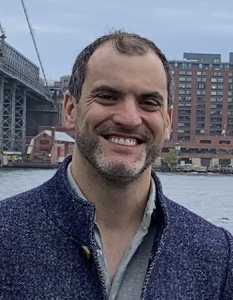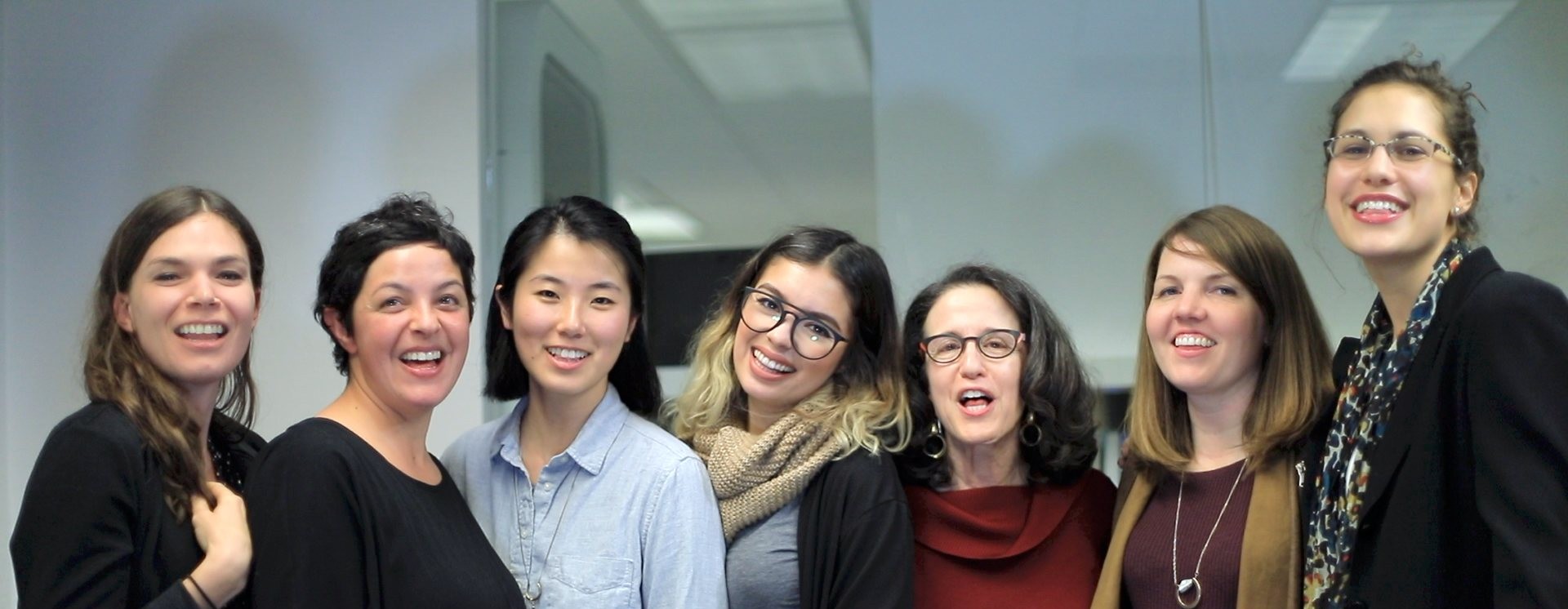Meet the New Executive Director for IPL at Stanford

Immigration Policy Lab
This job is no longer accepting applications
See open jobs at Immigration Policy Lab.See open jobs similar to "Meet the New Executive Director for IPL at Stanford" The Women’s Impact Alliance.Before the Immigration Policy Lab had an office or even a coffee maker, we had Duncan Lawrence, our founding executive director. For the next six years, he worked tirelessly to realize an ambitious vision for a social science lab that could fuel innovation in a policy area that urgently needed it. With creativity, entrepreneurial energy, and passion for producing the highest quality scientific research, he took IPL from an idea on paper to a flourishing lab with projects spanning the globe. As he departs IPL for his next chapter, we are deeply grateful for his leadership and dedication.
After a long and expansive search for a new executive director for IPL at Stanford, we are delighted to introduce you to Dr. Adam Lichtenheld. Adam has wide-ranging experience working at the nexus between policy and research on migration and some of its underlying causes, including conflict and violence. This includes roles at Mercy Corps, where he led the strategic planning, operations, and policy engagement for research on peace and conflict worldwide, and the World Bank, where he worked to develop the evaluation framework, methods, and diagnostic tools for fragile and conflict-affected states.
Adam shares our deep commitment to rigorous and policy-relevant research on refugees and immigrants. He has published multiple studies on forced displacement, conflict, and evidence-based interventions. These studies draw on a range of experimental, quasi-experimental, and observational methods, as well as qualitative fieldwork he conducted in Niger, Uganda, Turkey, and Syria.
Adam’s perspectives and experiences will complement our extraordinary team as we chart a course for IPL’s continued growth, and we are excited to forge ahead.
When you heard IPL was looking for an executive director, what drew you to this opportunity? What aspects of your role are you most looking forward to?
 I’m passionate about using rigorous evidence and analysis to solve real-world challenges, and migration has become one of the most pressing challenges of our time. I was drawn to IPL because it is at the forefront of developing and testing solutions that help refugees, immigrants, and their host communities. These solutions are needed now more than ever, with record numbers of people fleeing conflict and the effects of climate change, while many developed countries face labor shortages and population decline. And I think IPL has developed a unique model. By partnering directly with government agencies, NGOs, and service providers working on these issues, it has provided a blueprint for using social science to drive policy innovation. As a scholar-practitioner, I think this approach can make a real difference, and I want to help IPL maximize its impact.
I’m passionate about using rigorous evidence and analysis to solve real-world challenges, and migration has become one of the most pressing challenges of our time. I was drawn to IPL because it is at the forefront of developing and testing solutions that help refugees, immigrants, and their host communities. These solutions are needed now more than ever, with record numbers of people fleeing conflict and the effects of climate change, while many developed countries face labor shortages and population decline. And I think IPL has developed a unique model. By partnering directly with government agencies, NGOs, and service providers working on these issues, it has provided a blueprint for using social science to drive policy innovation. As a scholar-practitioner, I think this approach can make a real difference, and I want to help IPL maximize its impact.
I look forward to working with IPL’s dedicated, brilliant, and collaborative team of researchers. I’m eager to support our partners and the immigrant communities we serve. And I’m excited to tell the story of our work in a way that will inspire people to join us and support us, so that we can figure out how to make immigration work for everyone.
When you were a kid, what did you want to be when you grew up?
A paleontologist. Like many kids, I was really into dinosaurs. When I was nine, after the movie Jurassic Park came out and my parents took me to the Field Museum of Natural History in Chicago, I wanted to be Dr. Alan Grant. Then two things happened. First, I realized I liked people more than fossils. Second (and perhaps as a consequence), it became clear that I was not particularly gifted in the natural sciences. At least I can say that I did eventually fulfill my dream of becoming a scientist—just a very different kind!
When did you begin considering a PhD in political science? What made you decide to take that path?
I became interested in a life of the mind in college. Coming of age during 9/11 and the 2003 Iraq War piqued my interest in global politics. As a political science major, I was inspired by two of my professors who went off to interesting places, talked to interesting people, and wrote books and taught students about interesting issues. After college, I dabbled in several careers that afforded similar opportunities: journalism and international development. I left journalism because I was less interested in describing what was happening than explaining why and how it was happening. As a contractor for the U.S. Agency for International Development (USAID), I realized that if I wanted to help, say, improve governance in Afghanistan or strengthen civil society in Libya, then I needed much stronger analytical tools and a much deeper understanding of social and political issues. Pursuing a PhD seemed like the best bet.
Of all the international places you’ve visited, was there any place where you could imagine living long term? When you’re traveling abroad, is there anything you’re particularly homesick for?
One thing I’ve learned is that temporarily visiting another place to tour, work, or study is completely different from living there. As a white, male Westerner, I’ve had the ability to travel unencumbered to dozens of countries, where I received (mostly) warm welcomes. There are many places I hope to revisit—Uganda, Turkey, and Georgia top the list—but it can be hard to imagine grappling with the bureaucratic, cultural, and linguistic hurdles that often come with long-term residency. I’m privileged that I can make that choice. This points to the importance of integration, which comes back to the core of IPL’s work (if you’ll permit the shameless plug!) I’d want to know what governments and communities in these places are doing to help integrate immigrants.
When I travel overseas, I consistently miss good Mexican food. It’s tragic that taquerias are not as ubiquitous globally as Irish pubs. Fortunately, this is not something I need to worry about in the Bay Area.
What are some of your favorite things about life in the San Francisco Bay Area?
Other than the Mexican food? I love the diversity. The Bay Area illustrates how immigration can shape and enrich a place (though that diversity is under threat due to the skyrocketing costs of living). I also love the weather and the access to the outdoors. I grew up in Wisconsin, where you have approximately a 3-week respite between when the snow melts and when the mosquitoes make it unbearable to sit outside. I hike, cycle, and run, so living in a place where I can comfortably do these activities year-round—and where I can surf and ski in the same day—is a significant upgrade. I also have a toddler, and there is no building on earth that is large enough to contain his energy. So my wife and I are grateful that we can spend so much time outside with him exploring the area’s natural beauty.
We’ll understand if, as a Berkeley grad, your loyalties lie with Stanford’s biggest rival. But what do you think you’ll enjoy most about being part of the Stanford community and working on campus?
To be fair, I applied to both Berkeley and Stanford, and only one of them accepted me! But I harbor no resentment. Besides, my true loyalties lie with my undergraduate alma mater, the University of Wisconsin (Go Badgers!) I abstain from all California rivalries.
I think I’ll enjoy feeding off the intellectual energy and entrepreneurial ethos that permeate the Stanford campus. Being surrounded by top minds who are working every day to develop big ideas and solve vexing problems will be invigorating (and hopefully contagious). As a member of the Stanford community, I will relish the opportunity to learn and grow—and to use the privilege of my perch to better serve the marginalized and the vulnerable.

